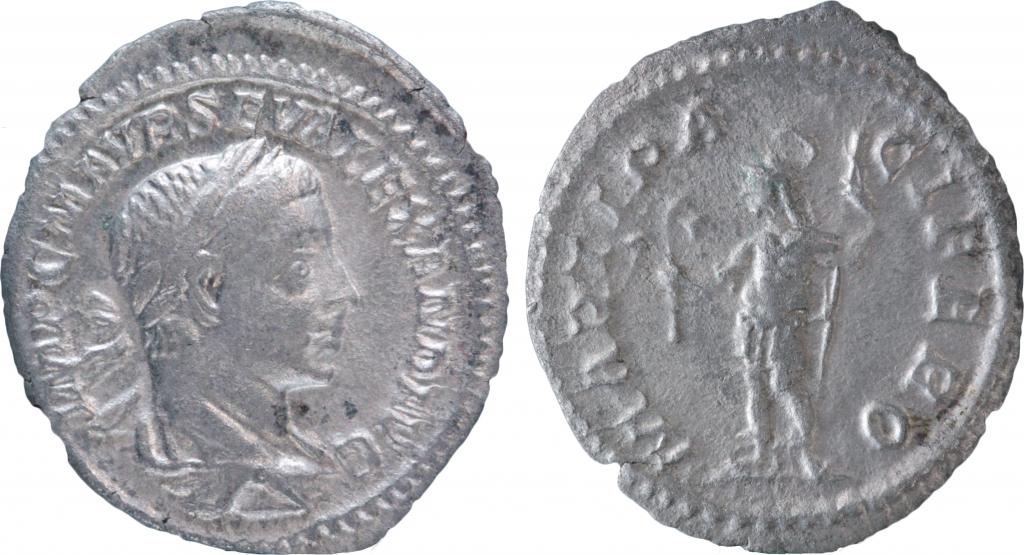March 14, 2015, by Will Leveritt
On this day in 222AD Severus Alexander became emperor of Rome
Text by Annabel Rock-Clarke
Image by Kelly Grimshaw and Katy Davies
The Emperor Severus Alexander was born in AD 208, at Arca Caesarea in the province of Syria. He was the son of the Romano-Syrian noble Marcus Julius Gessius Marcianus (who had been murdered by the emperor Macrinus in 218) and Julia Mamaea, a member of the Syrian branch of the Severan dynasty. His full birth name was Marcus Julius Gessius Alexanius.

AR denarius of emperor Severus Alexander. Obverse has laureate, draped head of emperor right, IMP C M AVR SEV ALEXAND AVG. Reverse has Mars standing with spear and branch, MARTI PACIFERO [to Mars, the bringer of peace]. 20mm, 2.31g, 6 o’clock.
Under the influence of his mother, Alexander did much to improve the inner and outer workings of the state. Concerning the justice system, he employed notable jurists, such as Ulpian, to oversee its administration, and also surrounded himself with distinguished advisors, amongst whom was the senator and historian, Cassius Dio. Several other reforms were introduced, such as the reduction of taxes, new aqueducts and building projects. Alexander maintained an open mind towards religious matters and the Historia Augusta notes his desire to build a temple in honour of Jesus, but the pagan priests dissuaded him from doing so. Militarily, Alexander did much to aid the soldiers: they could name anyone as heirs in their will, they could free slaves in their wills, and they were promised that their property would be protected whilst they were on campaign.
The downfall of Alexander presented itself when he was campaigning against tribes in Germania. His mistake was entering into an engagement of diplomacy and bribery, which exposed him as a weak military leader in the eyes of his legions. In AD 235, troops of the commander Maximinus led a mutiny against Alexander and murdered the Emperor and his mother, marking the end of the Severan dynasty.
No comments yet, fill out a comment to be the first

Leave a Reply